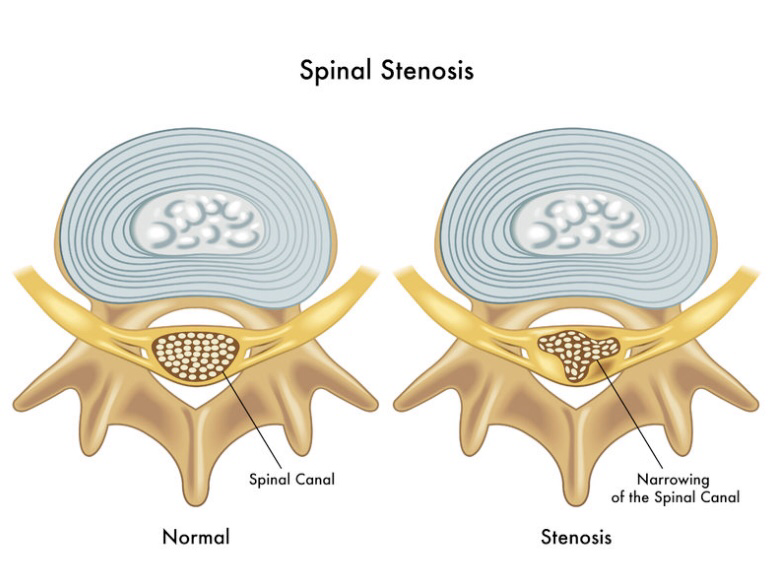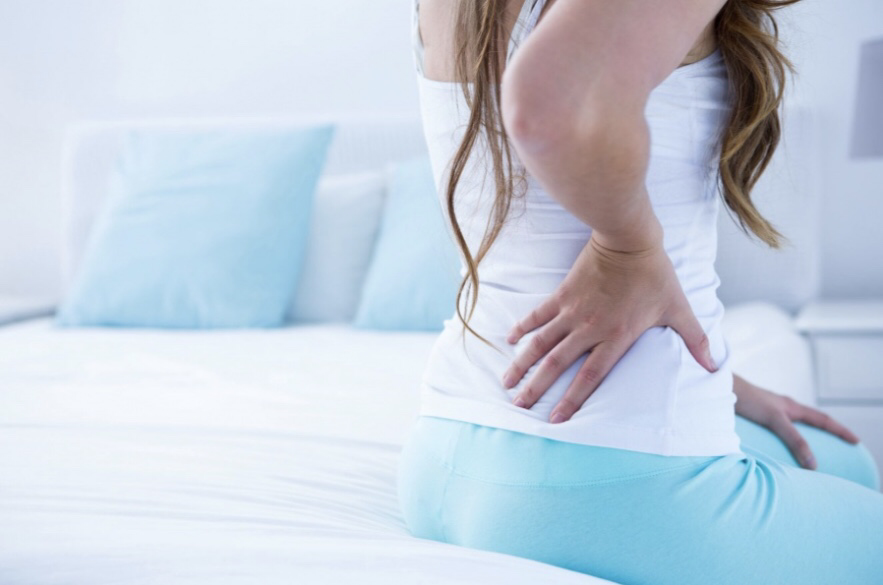|
Do you experience: sciatica? pinched nerves? arthritis in your spine? cramping? or fatigue with walking? you may be talking about spinal stenosis. Spinal stenosis is an arthritic spinal condition which most often affects the low back, but can occur in any part of your spine. Although, it can happen in younger persons, patients with stenosis are typically aged 60 or older. Our patients most frequently report: hand or leg numbness/tingling, weakness or fatigue with walking, relief of symptoms when bent forward (we call this shopping cart sign) and leg, calf or buttocks pain. Usually these symptoms are brought on by walking or prolonged standing. Your chiropractor can assist you by performing a history and physical exam to determine the cause of these symptoms as several conditions, such as peripheral vascular disease and disc herniations, can masquerade as stenosis. Treatment may include: exercise therapy, acupuncture, adjustments/mobilizations, soft tissue therapy, ergonomic advice and lifestyle changes. We determine how well your treatment is working by your walking/standing ability, quality of life and pain levels. Although stenosis cannot be cured, the team at Dalhousie Health & Wellness can greatly improve your symptoms and help you get back to the things you love.
1 Comment
Hello all, it is Osteopath John here with todays blog which is going to be on Low Back Pain, an extremely common complaint we see here at Dalhousie Health & Wellness.
There are many misconceptions associated with Low Back Pain and over the last 20+ years there’s been huge advancements in the research for Low Back Pain, however not all of the informations has trickled down to patients. So let us have a look at a few concepts and ideas, primarily mechanical loading can lead to ‘failure’ of the disc, muscles, ligaments or small joints of the spine. We can use the idea lifting of a box as an example to how the back can be become painful. You could lift one box which is extremely heavy and this could apply an excessive load which the back is unable to handle and this in turn will lead to injury and pain. To try and limit this occurrence health and safety execs, etc set limits on maximum safe lifting loads. However we are all individual and our tissues/discs/joints can all become strained at different levels of ‘load’. So what might be safe for some may be too much weight for others. Repetitive lifting of light boxes, well within lifting limits could actually cause more damage then lifting just one heavy box that is over the recommended limit, continuously carrying a light box could also stress the discs, muscles and joints of the spine. Does this mean that no lifting at all should be carried out? A short answer is no. As with most things in life it is all about finding the right balance for your body. ‘Loading’ our spines can ensure good bone density, muscle growth, and encourage blood flow. Although for anyone that does put mechanical loads through their backs it is important for them to understand the importance of rest. The same idea as when you go to the gym, it is not beneficial, but actually detrimental to work the same muscle groups day in and day out. Allowing periods of rest between lifting/loading of the spine will help to minimize the risk of injuries, there is also research demonstrating even the time of day can have an effect on the pressures put on our disks, it states that earlier in the day the higher the risk of injury. So how come it seems that some people are able to lift heavy objects with poor form every day and seem to be completely pain free? Well these are the lucky ones which have a good balance and endurance of all the muscles of the back/core, as each muscle group will engage in the right order and stabilizes the whole back. This prevents excesive strain through one part of the spine and this ensures that the load is distributed evenly through the back. Think of the muscles as the Guy Wires that all have to have the correct level of tension to keep the spine in its optimal position. Others unfortunately can lift the lightest load just slightly awkwardly and it leads to immense pain. This is indicative of poor posture, muscle imbalance, and can be predisposed by genetics and a history of spinal injuries. Now even without carrying a box or a load, we have gravity constantly putting forces through our backs, and poor posture, a weak core, and again a history of injuries can predispose us to low back pain without even any lifting involved. In these scenarios even a light strain can be enough to be the ‘straw that breaks the camels back’, and it can be what would seem to be a minimal load such as sleeping awkwardly, bending forward to tie your shoes, etc that lead to a pain that seems completely disproportionate to the movement that caused it. This is classic but demonstrates there was an underlying issue, as our spines should be able to easily deal with these movements/activities etc, without going into spasm. Ok, let us say we’ve over exerted it and now the back has become painful what next? You book in to see an Osteopathic Manual Practitioner, a Chiropractor or another type of Manual Therapist which is most likely be beneficial. Therapists’ can help to reduce the pressure placed on the spine, muscle, tendons, ligaments and discs. As well as encouraging healing of damaged tissues, here at the clinic we attempt to look further than just the site of pain, attempting to improve biomechanics all through the body so loads and strains are dissipated equally. Exercises maybe prescribed during sessions to help you recover faster, hopefully prevent future flair ups. Core strengthening is often a go to exercise but there are several studies that show core strength has little to do with future low back pain and it is instead endurance of the core muscles that are of more importance. The time of day should also be considered in regard for exercises, this is due to our disks being more hydrated in the morning and this extra fluid increases the pressure within the disc and therefor stretching down to touch your toes could increase the risk of injury as the disc can be thought of as a “jelly filled donut” and there is more chance of the jelly being pushed out if we put to much strain on the disc too early in the morning. It is also important to re-educate the body on correct form and movement, to assess what is not moving but should be and whats is moving too much. Our body is very good at compensating, so you may have a very stiff spine but are able to bend down and touch your toes easily, all this movement could be coming from hamstrings and hips and it may be dysfunction in the spine might be missed as your visual range of movement appears to be above average. These are just some of the considerations that have to be taken into account for rehabilitation exercises and it shows that a ‘one size fits all’ approach is does not exist. If there is restricted/immobile areas of the spine then other areas have to take extra strain to accommodate them and if there is too much movement then instability can also cause problems. It is also the same with strengthening, too much in the wrong area can be problematic and not enough strength/endurance can lead to future back complaints. So it really comes down to in depth assessment, to understand what really is the cause of pain, and then producing a patient specific care plan to address all the issues to hopefully provide you long lasting and effective pain relief! Call Dalhousie Health & Wellness today to book your individualized plan towards helping solve your low back pain for good! |
Archives
May 2024
|



 RSS Feed
RSS Feed